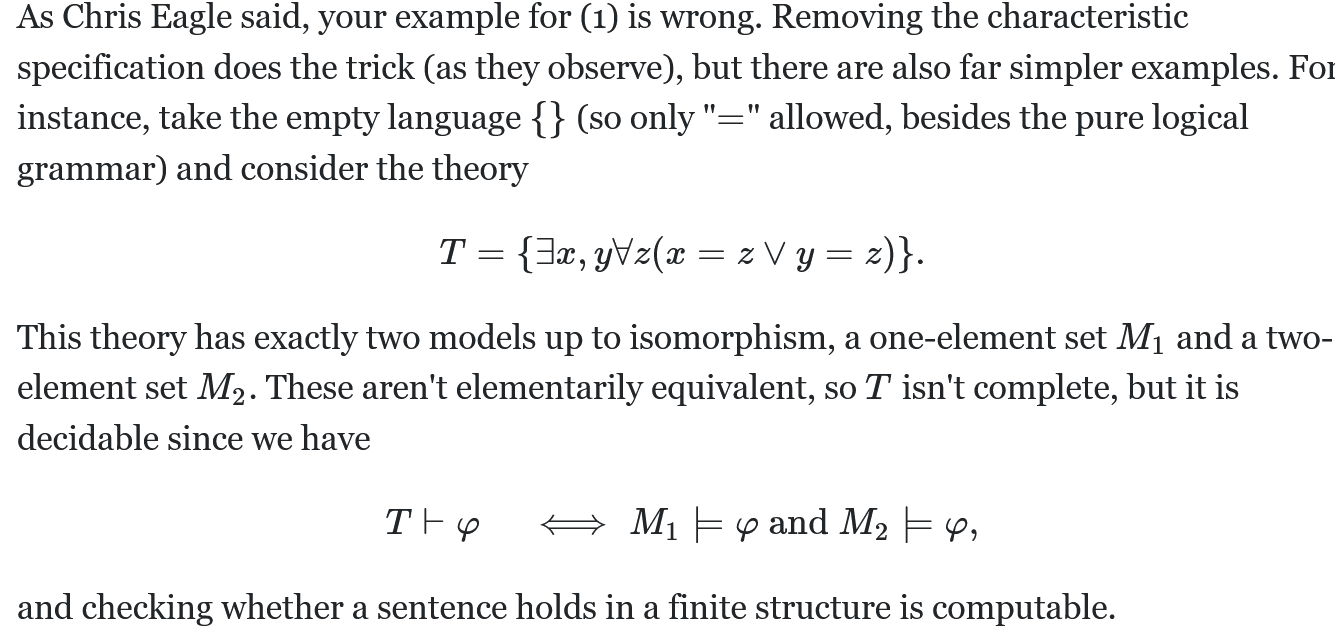I know right now that completeness implies decidability of a theory, but the question is essentially the converse of this:
Given an arbitrary formal theory that is somehow decidable by a Turing Machines, in the sense that for any sentence in the theory, you can decide it's truth or falsity by some means, can you show that it will inevitably be a complete theory?
If it isn't universally the case that decidability of a theory implies the completeness of a theory, are there any conditions that are required to have decidability of a theory be equivalent to completeness of a theory?

Correct. Each iteration of the halting problem for oracle Turing machines (called the "Turing jump") takes you to a new level of relative undecidability, so in particular true arithmetic is strictly harder than the halting problem.